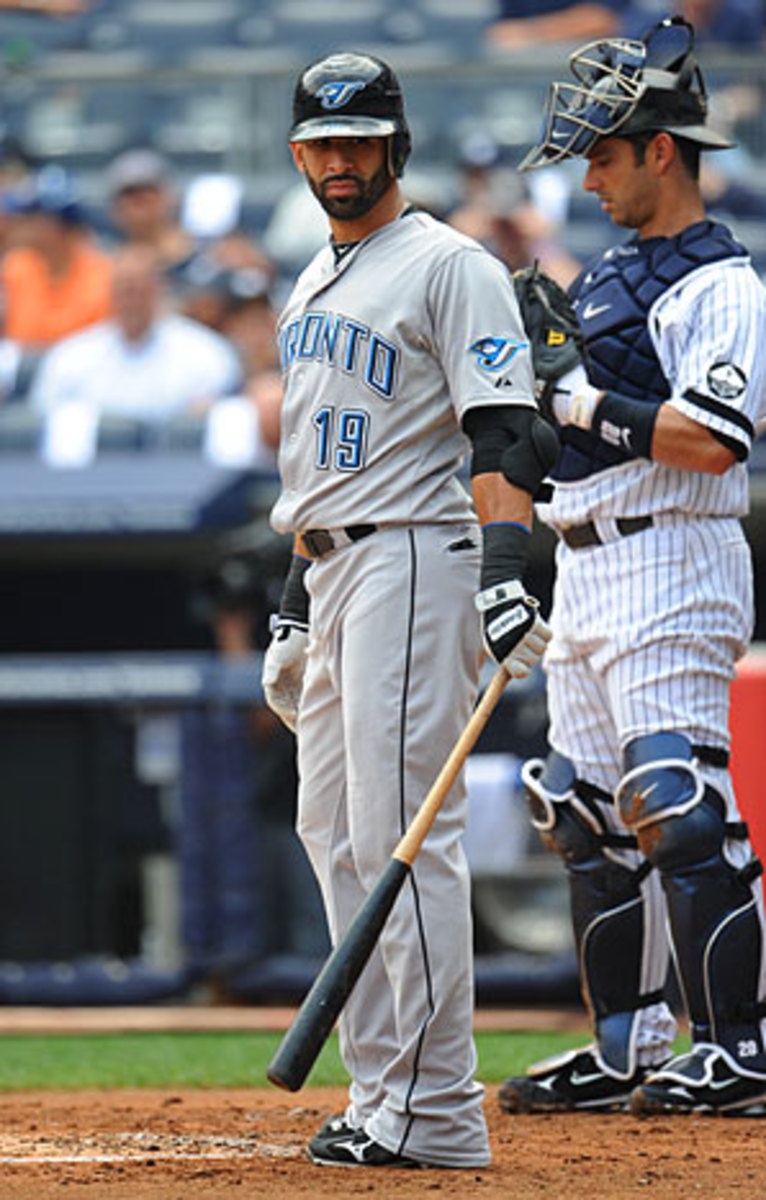Playing the spoiler is dirty work, but someone's gotta do it
Everyone remembers the team that chokes. Thirty years from now, kindergartners attending their first ball games will hear all about 1969 Chicago Cubs and the 1951 Brooklyn Dodgers, and so begin to learn the game's great lore.
What they won't learn, though, are the names of the spoilers, those teams that gleefully kicked the 1964 Philadelphia Phillies and the 1908 New York Giants in the ribs as they were crawling around spitting out teeth.
A true spoiler must be a non-contender. Take the example of the 1995 California Angels, who suffered what may have been the worst collapse in baseball history. At the end of play on Aug. 20, they were 9-1/2 games up in the West and 12-1/2 ahead in the wild-card standings, and yet managed to miss the playoffs. The team that dealt them the most damage was the Boston Red Sox, to whom they lost six games. Those Red Sox, though, won 86 games in a strike-shortened season. They were just a good team beating on another good team.
The real spoiler in the race was the Baltimore Orioles, a team that lost more than it won but managed to deny the Angels a playoff spot by beating them four of six down the stretch. This didn't redeem a lost season, but it surely gave them some satisfaction.
If you look at the great late-season collapses of the wild-card era, you find a spoiler in every case. Apart from the 1995 Angels, there have been four epic September slides of real note, those of the 2005 Cleveland Indians, the 2007 and 2008 Mets, and the 2009 Detroit Tigers. All might have made the playoffs if not for some pesky scrubs.
The 2005 Indians had a 1-1/2-game lead in the wild-card race as of Sept. 24. If they had taken care of business against a Tampa Bay Devil Rays club that won just 65 that year, they would have been in good shape. Alas, they couldn't, losing two of three.
The failures of the infamous 2007 Mets were widespread, but clearly the great culprit was their inability to win against a lousy Washington Nationals team that beat them in five of six games. The next year's September implosion was less notorious but still quite bad, and due largely to the gleeful and not very good Atlanta Braves taking four of six late in the year.
Finally, last year's Tigers wouldn't have had to play a 163rd game and give a hungover Miguel Cabrera the chance to write his name in the lists of infamy if they had been able to handle the unimpressive Chicago White Sox, to whom they lost four of six down the stretch.
It's worth noting that these spoiling clubs had some commonalities.
With the exception of the 2007 Nationals, for one, all were bad more because they were lousy at one aspect of the game than because they were bad overall. Last year's White Sox, for instance, had the best adjusted ERA in the American League; they were bad because they couldn't hit at all. Similarly, the 1995 Orioles had terrific pitching and a lame offense, while the 2008 Braves had a pretty good lineup and bad pitching.
These teams have also had scary managers. Lou Piniella managed the 2005 Devil Rays, Frank Robinson the 2007 Nationals, Bobby Cox the 2008 Braves and Ozzie Guillen the 2009 White Sox. Say what you will about any of them, but these aren't men who tolerate failure easily, and they're exactly the kind to demand that a team play as hard in game 156 of a hopeless season as they would on Opening Day.
Keep those two things in mind, as well as the fact that spoiling is largely a function of opportunity, and two 2010 teams leap right out as potential breakers of hearts and cause of mournful tales being told to children who now aren't a glint in their grandparents' eyes.
The Toronto Blue Jays are out of contention but are a team that can really hit -- they're third in the league in adjusted OPS. They're also managed by Cito Gaston, who may not be a Hall of Famer but does have two World Series rings. Their stretch run includes six games against the Rays and New York Yankees, four against the Twins and three against the Red Sox. One can easily imagine them ruining someone's party.
The Detroit Tigers aren't quite as good at anything as the Blue Jays are at hitting, but they are sixth in the league in adjusted OPS and they're managed by Jim Leyland, a man unlikely to allow his team to lay down for anyone. They have six games lined up against the Twins, seven against the White Sox, and fond memories of recent days when they were as much a contender as either. Whichever team wins the Central will have to do their damage against this bunch.
A mention should go to the Milwaukee Brewers, as well. Ken Macha is no Bobby Cox, but his team has arguably the best offense in the National League and a schedule that provides them with a ridiculous number of chances to ruin others' fun. They have nine games against the Cincinnati Reds and three apiece against the Phillies, the Giants and the Cardinals. That's plenty of opportunity, and while no one else may remember if they take advantage of it, they surely will.
Tim Marchman can be reached at tlmarchman@gmail.com.






